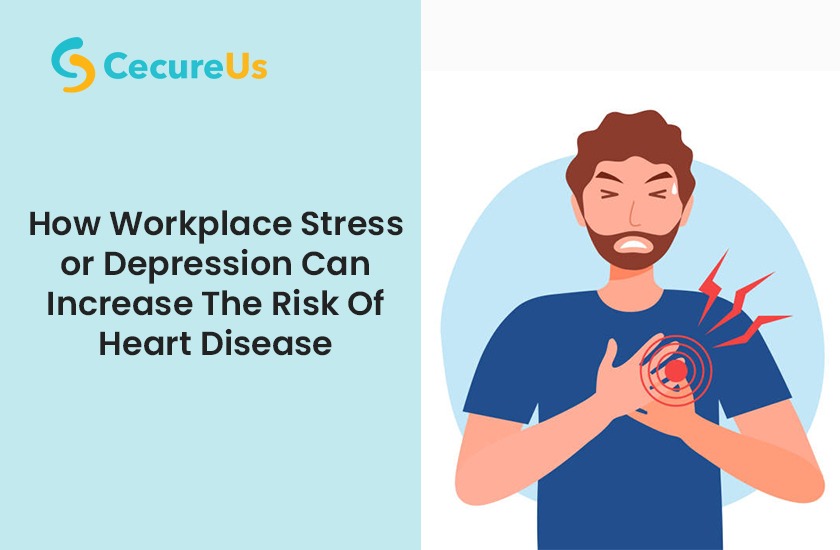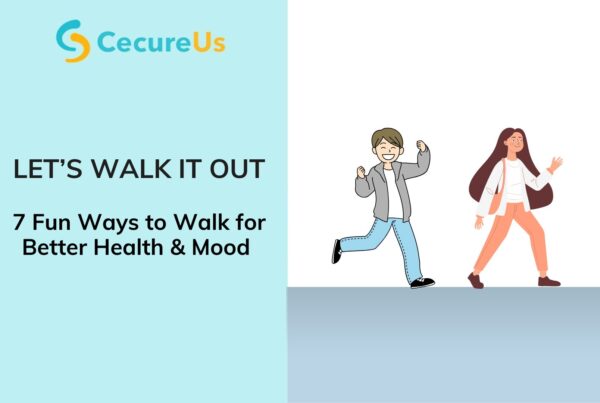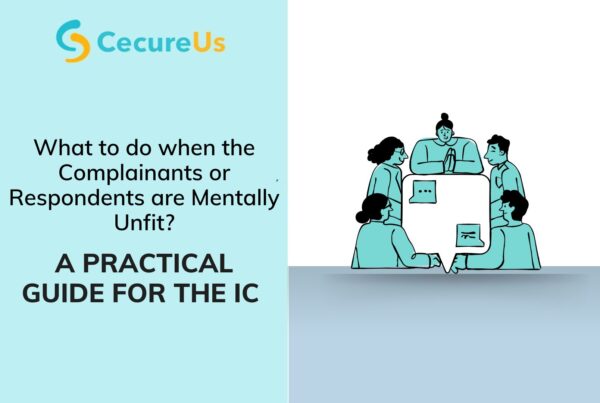
The Information and Technology Sector demands a lot of focus and dedication to work. Due to the rapid progress of the industry and the demand for new inventions to tap dynamic customers, the sector attracts a diverse talent pool. But the stress employees go through because of the type of work in this sector is comparatively high. Due to shift work, lack of sleep, late-night meetings, deadlines, workplace conflicts, and the constant need for focus and alertness, employees are subjected to anxiety and stress, and many have reported mental health issues like depression and OCD in the recent past. Although stress is considered healthy for drive and focus on work, prolonged stress can lead to anxiety and severe clinical depression.
Good cardiac health is a significant contributing factor to leading a long life. With health experts creating awareness about heart health and organizations taking the plunge through their Employee Assistance Program(EAP) to counsel employees for personal and work-related stress, anxiety, and other mental health issues, the cognition of healthy lifestyle choices for maintaining good heart health has increased. Several studies have proven that elevated stress and anxiety, in the long run, can affect the cardiac health of an individual. It is disheartening to see that several employees in the IT sector, due to their lifestyle, irregular routine, food choices, and lack of work-life balance, are suffering from conditions like diabetes, high blood pressure, and blood cholesterol, and some, even in their forties are falling prey to heart attack and cardiac arrests.
In this article, we attempt to highlight how workplace stress, depression, and anxiety can increase the risk of heart disease in employees.
How work-related stress affects the cardiac health of an individual
Two predominant risk factors determine our cardiac health
- Non-Modifiable risk factors
- Modifiable risk factors
Non-modifiable risk factors are those factors that are not in an individual’s control, primarily genetics. Any individual with a family history of blood pressure, diabetes, or other cardiac issues may be prone to heart-related problems. Although there is no guarantee to avoid them, an active lifestyle, nutrition, lower stress and anxiety levels, good work-life balance, and moderate everyday physical activities can delay cardiac problems, and, in some cases, individuals can avoid them altogether.
Employees aware of their family history can approach an expert through their organization’s Employee Assistance Program(EAP), who can counsel and guide them towards healthy living.
Modifiable Risk factors are those that can be controlled by an individual.
Sedentary lifestyle:
Most employees in the IT sector have a sedentary lifestyle. The long travel time for work, late-night calls, and extended work hours leave them limited time to care for their physical and mental health, subjecting them to cardiac illnesses. Organizations must conduct workshops through their EAP for employees to grasp the impact of a sedentary lifestyle on their cardiac health and counsel them about time management so that employees take time out of their busy schedules to focus on their physical and mental health.
Unhealthy eating habits:
The impact of the west and busy schedules packed with stress and anxiety have given rise to the fast-food culture. Amidst the hustle-bustle of life and work, employees hardly get time to enjoy a hearty meal, and quick grab-and-go foods have become common. Prolonged anxiety also leads to stress-eating, and fast foods satisfy the palette, rendering temporary relief. These oily, fast foods have little to no nutritional value but lead to high cholesterol, which causes heart attack and sometimes cardiac arrest. Health and nutrition experts approach employees through EAP to counsel and help them understand nutrition, urging them to switch to healthy oils like olive oil, lean meat, native foods and foods rich in omega 3 fatty acids, salads, more fruits and vegetables, and reduce the consumption of simple carbs(Rice and wheat) for a healthy heart in the long run.
Alcohol and Smoking:
Smoking must be avoided at all costs if one wishes to have good cardiac health. Most individuals who smoke feel that the habit relieves stress. Nicotine in cigarettes and tobacco products impacts the heart’s rhythm and pumping, damage the heart valves and coronary arteries in the long run, leading to cardiac arrest. Alcohol must be consumed moderately. Social or occasional drinking, although not harmful, must be controlled. Increased consumption of alcohol, apart from leading to liver damage and cirrhosis, also alters the cardiac rhythm, fast-tracking the risk of cardiac illnesses.
Postures:
Apart from these risk factors, postures play a pivotal role in maintaining good blood circulation. Prolonged sitting at work can lead to muscle and joint stiffness and aches of the shoulder and upper body that are often confused with symptoms of a heart attack. Maintaining postures during work can keep our brains active and improve focus. It also keeps blood flowing throughout the body, lessening stress on our hearts.
Overweight, Obesity, and High Blood cholesterol:
Maintaining one’s BMI through regular physical activities of 30 to 45 minutes a day can lower the risk of cardiac illnesses. High blood cholesterol and consumption of fatty foods cause occlusion and plaque build-up in the coronary arteries, thereby damaging the heart muscle. Individuals diagnosed early with high BP, cholesterol, and diabetes have to stringently follow medical advice and take medications to help overcome the conditions.
Stress and Anxiety:
All individuals are subjected to stress and anxiety in various phases of life. In sectors like the ICT, rendering results is a must. And the desire to climb to the top of the corporate ladder pushes employees to step out of their comfort zones and take up challenges. But the accompanying stress and anxiety must be tackled in the right way, or else it leads to higher cortisol levels and hormone fluctuations, leading to low cardiac efficiency and coronary artery diseases.
Causes of work-related stress
Work-related stress is unavoidable when posed with the challenge of demands and pressures that do not match our knowledge and capabilities. Some of the causes of work-related stress could be,
- increased workload,
- long working hours,
- job insecurity and pay scale,
- poor organizational culture,
- relationships at work,
- conflict with co-workers and bosses,
- lack of help from management.
Symptoms of Work-related stress
- Over-anxiety,
- fatigue,
- palpitations,
- Gastro-intestinal problems,
- pins and needles sensation throughout the body,
- performance dip,
- mood swings,
- inability to sleep,
- Depression,
- Increased absenteeism.
Tackling work-related stress for a healthy heart
Yoga, Meditation, and physical activities release endorphins that reduce stress. Pranayama regulates cardiac rhythm and helps beat fear and anxiety. If an employee has trouble coping or feels stressed out, they must take self-assessments to perceive their actual situation and reach out to a counsellor through EAP.
Psychologists identify the root cause of anxiety through talk therapy and counsel and guide employees to regulate their emotions. It is also mandatory for organizations to conduct health, Yoga, and meditation workshops through EAP.
How EAP Works to reduce work-related stress:
Work-related stress can both be a management issue and an individual issue. To resolve this, HR and managers in organizations must utilize EAP to counsel their employees. EAP enables the top-level management to identify problem areas and resolve them in the early stages for smooth organizational function.
The Employee Assistance Program(EAP) helps to
- Counsel employees to cope with work-related struggles
- Guide and counsel employees to practice mindfulness for increased focus and productivity
- help employees with time management to relieve mental stress
- Counsel employees with diagnosed medical conditions like high blood pressure or heart diseases to cope
- Provide moral support to employees who have recently recovered from heart attack and counsel their immediate family
- Sensitize employees about mental health disorders to avoid workplace biases.
For more such blogs, visit eap.cecureus.com. Contact Us if you are concerned about yourself or a loved one. Book an Appointment today, or call us on 18001219497




